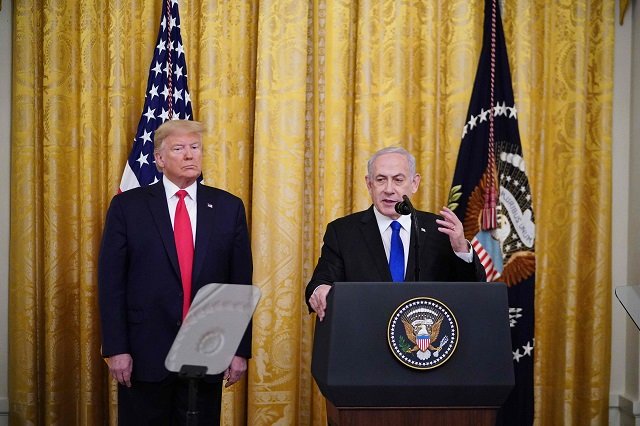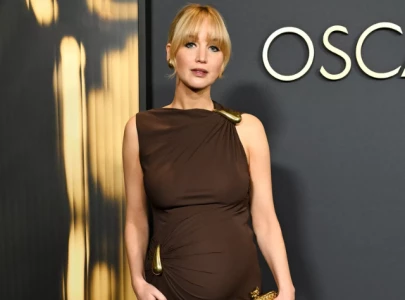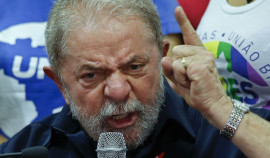
With the new US peace plan rejected in advance by the Palestinians and talks between the two sides stalled since 2014, here is a recap of Trump's position:
In November 2016, just-elected Trump says in an interview with The New York Times that he "would love to be the one who made peace with Israel and the Palestinians".
"That's the ultimate deal," he tells The Wall Street Journal.
He indicates his son-in-law Jared Kushner could play a key role in brokering negotiations.
In February 2017, he warmly welcomes Israeli Prime Minister Benjamin Netanyahu to the White House and says a two-state solution is not the only option to end the conflict.
In May, Trump confidently predicts that a Middle East peace agreement is within grasp as he hosts Palestinian leader Mahmud Abbas at the White House, saying: "We will get it done".
During a visit to Jerusalem, he warns both sides "will face tough decisions" and making peace "will not be easy".
In December 2017, Trump recognises Jerusalem as the capital of Israel, effectively ignoring Palestinian claims on the Holy City and breaking with previous US policy.
Outraged, Abbas in January 2018 denounces White House peace efforts as "the slap of the century".
The US embassy is officially transferred from Tel Aviv to Jerusalem on May 14, 2018, the day marked by clashes in the Gaza Strip where about 60 Palestinian protesters are killed by Israeli fire.
Abbas says the United States can no longer play its historic role as mediator of peace talks.
US bombing of Afghanistan hits 10-year high
In March 2019, US Secretary of State Mike Pompeo suggests the upcoming US peace plan would break with previous "parameters" on thorny issues such as the status of Jerusalem and Israeli settlements.
What "was tried before failed", he says. "We think we have some ideas that are new and fresh and different."
In May, Kushner says it will pull back from longstanding mentions of a two-state solution with the Palestinians.
"If you say 'two-state,' it means one thing to the Israelis, it means one thing to the Palestinians," Kushner says.
In June 2019, Kushner launches the economic component of the US initiative at a conference in Bahrain.
He says the "Peace to Prosperity" initiative calls for $50 billion in international investment in the Palestinian territories and neighbouring Arab countries over 10 years, in infrastructure, tourism and education, with the creation of a million jobs.
However, the Palestinians boycott the US-led "economic workshop", saying it amounts to a bid by Trump to buy them off in return for giving up on their own state.
In July, Kushner returns to the Middle East for discussions on the American plan.
In September, Trump's envoy to the region, Jason Greenblatt, who had worked alongside Kushner, announces his resignation.
In January 2020, Trump announces that he will unveil his peace plan before the scheduled visit to Washington on the 28th by Israeli Prime Minister Benjamin Netanyahu.
"The 'deal of the century'... is already dead," Abbas's spokesperson says.
LIVE: President @realDonaldTrump unveils plan for peace agreement https://t.co/86eeZMv61W
— The White House 45 Archived (@WhiteHouse45) January 28, 2020


1732085354-0/insta-(1)1732085354-0-165x106.webp)

1725366721-0/kyle-(1)1725366721-0-165x106.webp)
1732085354-0/insta-(1)1732085354-0-270x192.webp)











COMMENTS
Comments are moderated and generally will be posted if they are on-topic and not abusive.
For more information, please see our Comments FAQ